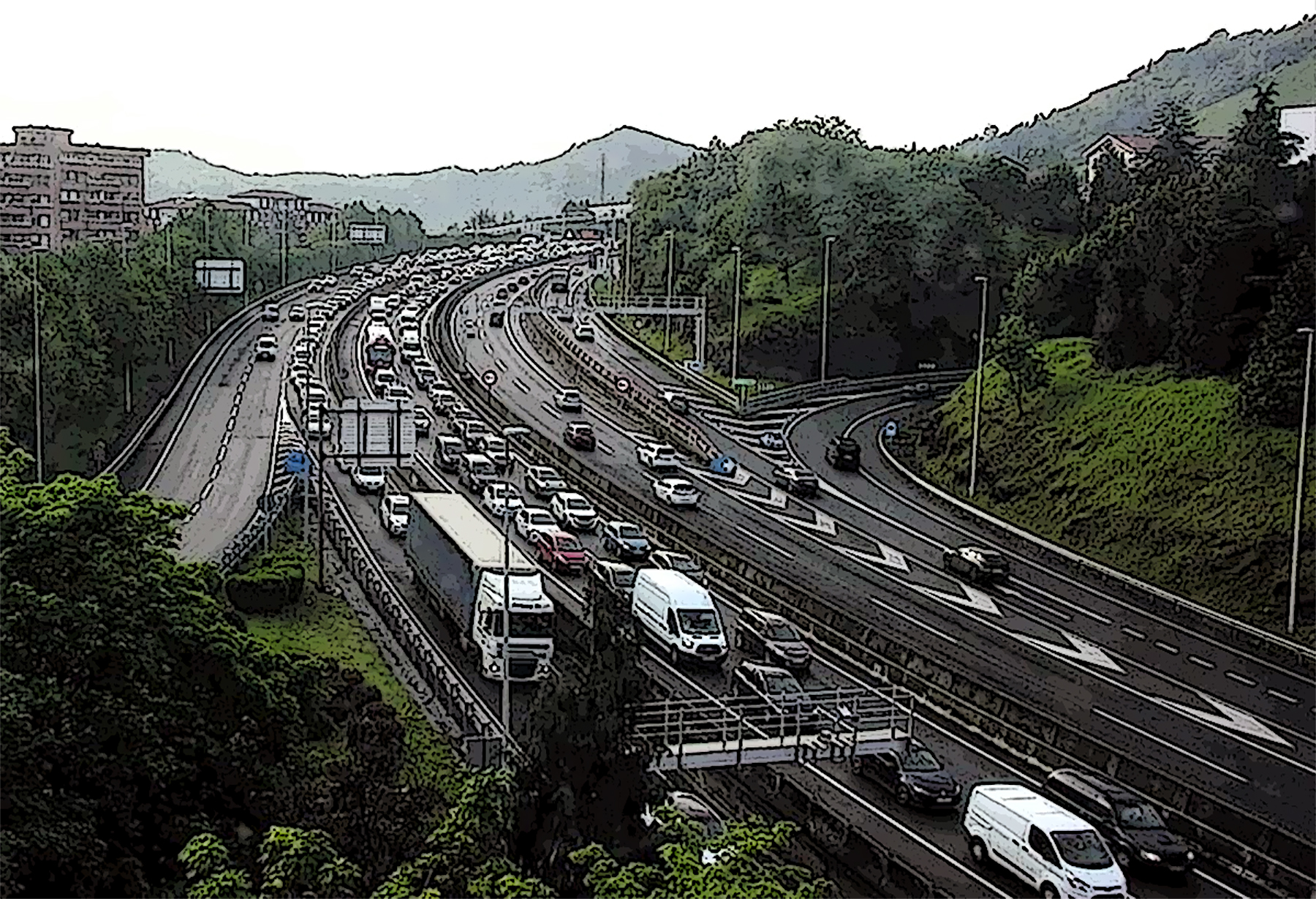

We have news from last week: A 67-year-old truck driver died while loading the truck. If it had been on the road, we would have heard “inconveniences on the road”, then, in a similar way, “a trucker has died in the accident”. Now that taking the train in Gipuzkoa has become an impossible mission, I have imagined the thousands of workers who live in the tyranny of the working clock sighing: “The N-1 road collapsed again!”
Truckers don’t risk their lives for pleasure. They urinate in plastic water bottles to save time, they sleep in the truck to save money, there is no big meal. Maybe a drink before going to sleep.
Calling it a “road accident” rather than a “work accident” is cruel. Because every one of those truckers that we cross and/or overtake on the roads hides a drama. Family not seen for a long time, self-employed subcontracted by a subcontractor of a subcontractor, with papers in a fair shade, who travels with spending wheels to save money, who has a tachograph manipulated to be able to meet the schedules indicated by the boss, who has deactivated the speed limiter... Truckers don’t risk their lives for pleasure. They urinate in plastic water bottles to save time, they sleep in the truck to save money, there is no big meal. Maybe a drink before bed.
I have turned to the list of fatal accidents at work of carriers for information: Since 2021, 43 transporters have died (at least). In 2025, 8. Most of the in-itinere, even in the case of vehicle entrapment and/or, as in the case of Irún, truck loading operations. The situation is also getting worse in the warehouses of large transport companies. Precariousness in and out.
The transport sector is a very complicated sector of unionisation and organisation. Perhaps, in addition to joining the union, we could begin to look respectfully at distributors and transporters as consumers and guides. Because the misery is hidden behind Amazon, Dachser, DHL, SEUR or any other brand.